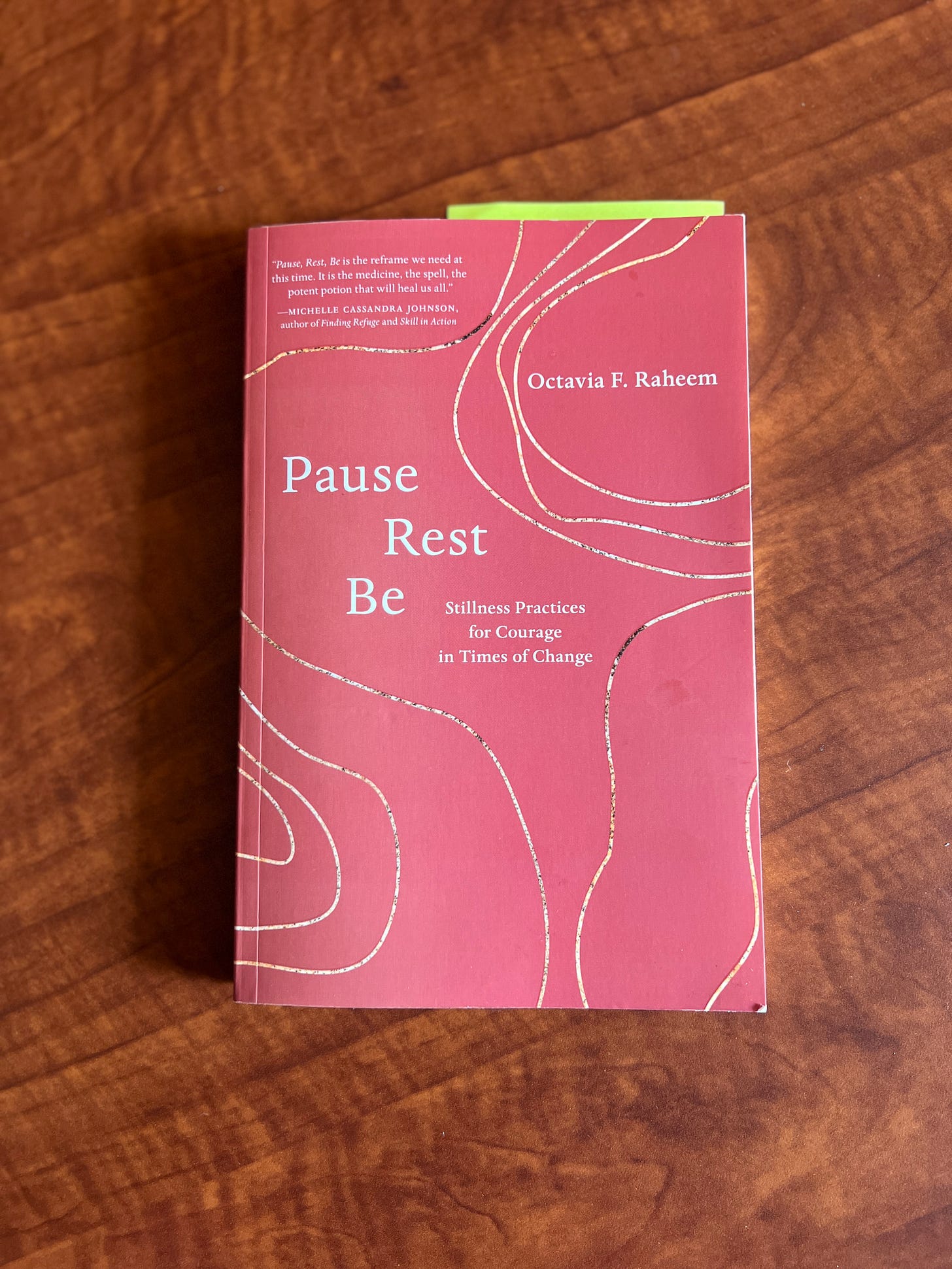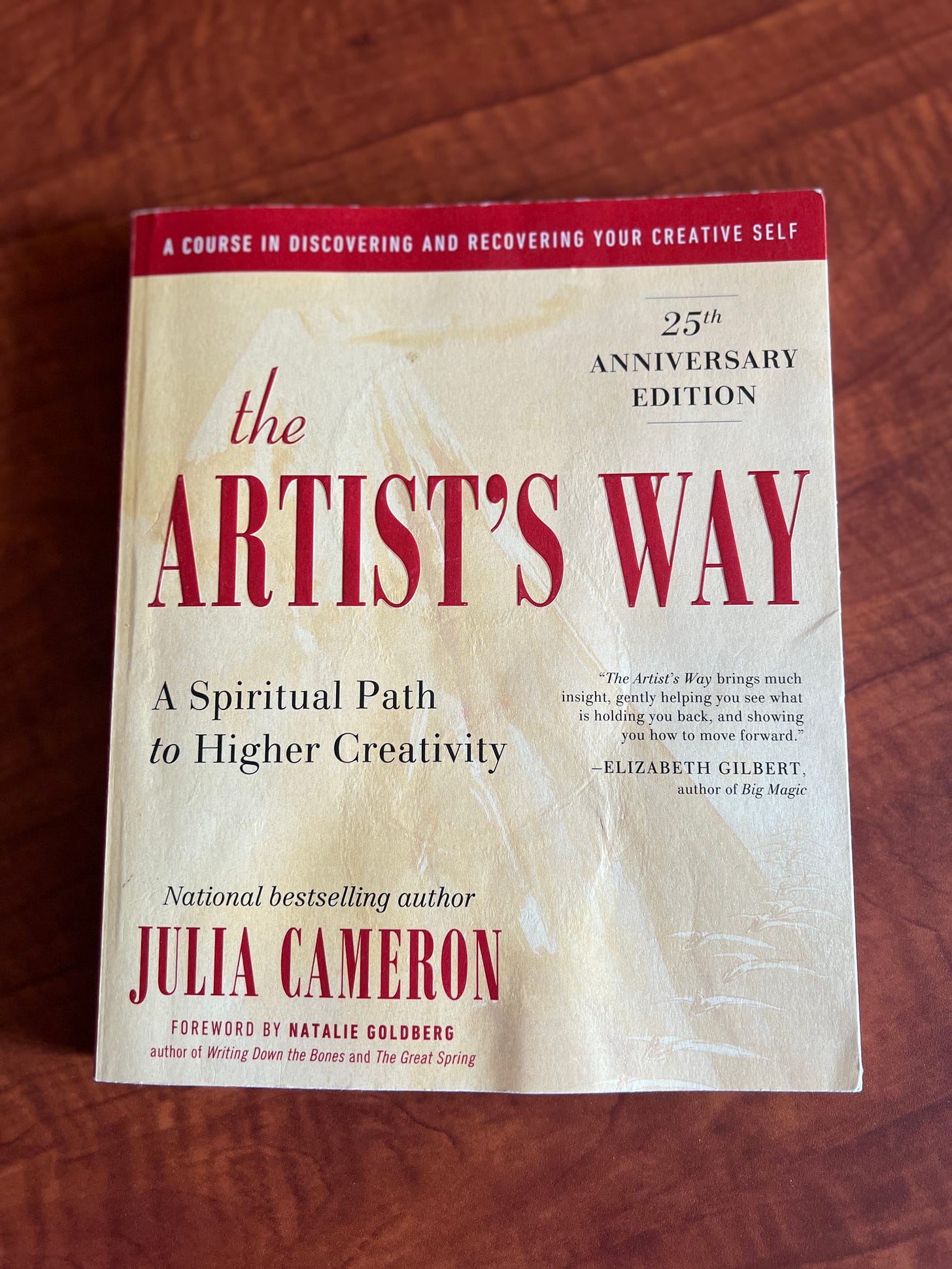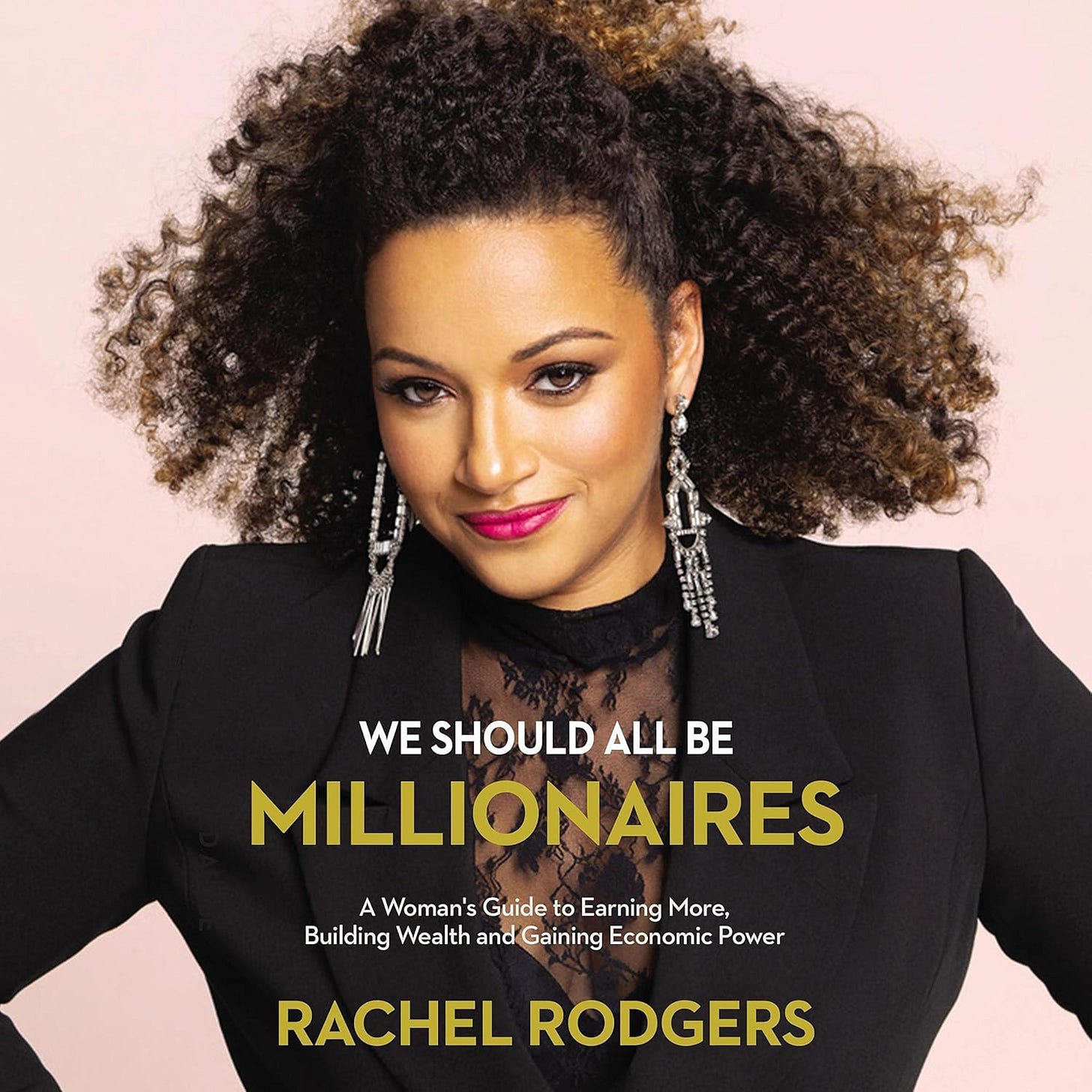Reading My Way to Healing
Three recent reads that are helping me to (re)claim my rest, my power, and my desires

My self-care journey began in November 2002 with a crisis, an awakening, and a book. Actually, there were a series of crises, which were magnified by decades of self-neglect. In my first book, Too Heavy a Yoke, I detail the story of the epiphany that I had the day after Thanksgiving: something had to change and it needed to start with my tendency to put other people’s needs above my own. The thing is, I didn’t know where to start. I needed some new tools. I needed a teacher. So I did what bookworms do when we’re faced with a problem to solve: I went to my bookshelf.
The upside of buying more books than I have time to read is that someday I might be in a position where I need that book. That Friday morning, I found what I needed in Debrena Jackson Gandy’s Sacred Pampering Principles: An African-American Woman’s Guide to Self-Care and Inner Renewal. There is where I first encountered the label that captured what was wrong with me: StrongBlackWoman. I devoured the entire book over the weekend. By the time I returned home on Sunday evening, I was putting together my first self-care plan.
A lot has changed since then. What hasn’t changed is my tendency to look to the wisdom of writers when I am in need of a shift. In April of this year, I found myself at that point. This time I knew that I needed more than one voice. Two were already on my “to-be-read-next” shelf: Octavia Raheem’s Pause, Rest, Be, and Julia Cameron’s The Artist’s Way. The third, Rachel Rodgers’s We Should All Be Millionaires, was a recommendation from my friend, Candice Marie Benbow. I worked through each slowly. I didn’t want to just read these books. I wanted to let them read me. So I’d read for awhile and then reflect for awhile. And now that I’ve finished all three, I thought I’d share what I’m (still) learning.
A Deeper Rest
Everyone needs a teacher. It can be hard to find one, though, when you have some expertise in a field. That’s how I often feel when reading books or attending workshops about self-care. But with Octavia Raheem’s Pause, Rest, Be: Stillness Practices for Courage in Times of Change, I found new wisdom and also reconnected to my own. Octavia Raheem is a wellness coach and a yoga and meditation teacher. Like me, she has a spirituality that has strong roots in southern Black Christianity but that bears the expansiveness and inclusivity of other wisdom traditions. I don’t think she uses the term “womanist” in the book, but that’s what it feels like, a primer on womanist spirituality that is rooted in the lived experience of Black women engaged in the struggle for personal and collective liberation. Yep, that’s the kind of teacher I need.
Pause, Rest, Be is a collection of reflections and poetic meditations about transition, loss, and rebirth. Raheem invites us not to rush from the old into the new, but to slow down and allow ourselves to fully experience each phase. What is in the process of dying? What does it feel like to be in a liminal space? How do we make room for something new to be birthed? She offers detailed instructions on three restorative yoga poses to accompany each phase.
I’ve been practicing yoga for thirty plus years now. For the past five or so years, I’ve had a fairly regular yin yoga practice, so the poses were familiar to me. But Raheem helped me to approach the poses in a different way, as a form of sacred rest. It was right on time. For the past six months, I’ve been working on regulating my circadian rhythm, improving my sleep quality, and activating my vagus nerve. My yin yoga practices were helpful, but I was too often approaching them with a striving mentality, that is, striving to be more flexible, to find my edge, to improve in some way. Raheem helped me to fully rest in the practice, to not worry so much about whether I was doing it right or enough, to just be. I invested in two new bolsters to support my practice and I often end my day with a yin or restorative yoga routine. It helps my heart rate lower at night and allows me to get deeper rest.
[I have never met Octavia Raheem and Tricia Hersey, but it feels like the three of us need to get together in the same space. We’re all Black women from Georgia doing parallel work. This needs to happen].
Reclaiming My Time
Julia Cameron’s bestselling book, The Artist’s Way: A Spiritual Path to Higher Creativity, has been on my shelf for at least five years. For at least five years, it’s been on my list of summer reads. I’ve read the introduction multiple times but could never find time to really work through the book. Sometimes you just have to wait until you’re ready. This spring, I was finally ready. I was feeling creatively stagnant. I’ve struggled more to protect my writing time at my current job than in any of my previous three institutions. [At some point, I need a conversation with my PCUSA friends about the works righteousness that seems to pervade Presbyterian culture. I thought United Methodists liked to meet “just to meet” but Presbyterians…whew!]. I’ve managed to keep up my weekly writing for No Trifling Matter, but other writing and creative priorities have been laying dormant. I needed something to help jumpstart a better rhythm.
Cameron frames creativity as a spiritual gift, rather than a mere hobby or interest. When creatives lack time to nurture the gift, we feel blocked, frustrated, and out of sync with Spirit. This is very aligned with the meaning that writing has for me. People often ask how I manage to remain committed to my craft in the midst of all life’s challenges and obligations. The answer is that I don’t feel like I have a choice. Not writing is like holding my breath. I need to breathe, not just quick gulps here and there, but consistent, deep, full belly breaths.
Cameron’s book is 30 years old. It is both dated and culturally myopic (she makes a lot of assumptions about issues like family structure). But she provides weekly reflections and exercises that are designed to help us work through the things that block us, including our beliefs about our worthiness, our capacity, and our success. The most helpful activities are the morning pages and the artist date. Morning pages is essentially journaling. I’ve kept a journal for over 30 years, so that’s not new to me. But I appreciated the structure that Cameron suggests: writing 3 pages in a journal first thing in the morning at least 6 days of week, with the goal being to fill the page no matter what. I was doubtful about whether I could do that. But it turns out that I could. I did. The morning pages help me to process the events of the day before and to think about what I expect to face in the day ahead (and how I want to face it). It clears the deck, so to speak. I’m a morning person. I often wake up with lots of ideas that tend to get lost in the hustle of the day. Setting aside 25 minutes to write each morning has cultivated a deeper sense of connection to myself and my creative impulsive.
The other practice is the artist date, a weekly date with myself where I spend time doing something that inspires or nourishes my sense of creativity and wonder. Sometimes that meant visiting museums and art galleries, venturing out to unfamiliar coffee shops and tea cafes, taking myself out to brunch, browsing bookstores or craft stores, or doing Lego sets. It’s less about what I do than the fact that I make time – no matter how brief – for imagination, no matter how brief it is.
Cameron’s book is a 12-week study but I took a bit longer. Some chapters I read through twice, especially those around success and prosperity. The book motivated me to reclaim my time for creativity as a sacred practice. It helped me to identify some of the barriers that hold me back and to start the current academic year with more determination to protect my time for my own creative engagements.
Dreaming the Life I Desire
In January 2020, I made my first vision board. At the center was the phrase, “DREAM BIG.” I’d become aware of how often I set unconscious limitations upon myself. I closed myself off to possibility. I focused a lot of energy on securing invitations to other people’s tables. I was often content with crumbs when there was an entire smorgasbord laid out before me. Of course, then the COVID-19 pandemic and many of my newly emerging dreams seemed to wither on the vine. But the impulse to dream did not die.
One of the dreams was to have enough money to meet my all of my family’s needs and wants. That looks fairly simple now that I’ve written it, but I stand at the intersection of multiple fields that have a lot of money guilt. I once attended a psychology continuing education workshop where the facilitator helped us to confront the guilt that many of us feel about charging people to alleviate their suffering. Faculty are often made to believe that the desire for material comfort is at odds with a commitment to the scholarly life. And while a lot of media attention is given to clergy who fleece the people, most religious leaders make far less money than their education and skills merit. Those who work with marginalized populations often have a sense of survivor’s guilt in which they feel bad about being financially better off than the populations they serve.
In the past few years, I’ve finally felt a lifting of the economic weight that has saddled me for much of my life and career. I realized how much I’d gotten accustomed to struggle, how much I’d learned to valorize it. I was finally ready to dream big. I needed help releasing the chains on my imagination. When Candice Benbow posted about how transformative Rachel Rodgers’ We Should All Be Millionaires: A Woman’s Guide to Earning More, Building Wealth, and Gaining Economic Power had been for her, I purchased it immediately. This new purchase didn’t go on the “to-be-read-next” shelf, though. I started reading it right away. I was convicted in the first few pages.
Rodgers does for financial success what Cameron tries to do with creativity: she helps readers to identify the beliefs and experiences that make us fearful of success. But unlike most self-help authors (especially all the financial gurus), she does not pretend that our struggle is the result of individual weakness. She rejects the idea that women of color and other marginalized people need to just stop buying lattes and shoes. She also rejects the idea that wealth and justice are incompatible.
I don’t know that I believe that we should all be millionaires. But I no longer believe that wealth is a zero-sum game, that my material comfort inevitably comes at someone else’s expense. That’s a popular misconception in justice circles, and it leads many of us to lower our expectations, to acquiesce to a life of financial struggle under the misguided idea that it benefits someone else. Like a lot of activists, I believe that laissez-faire capitalism is incompatible with God’s shalom. It’s responsible for a lot of suffering in our world. That does not mean, however, that I have to reject the notion of financial thriving, especially thriving that comes from doing good work and that is used to advance the cause of justice in a warped world.
One of the most powerful exercises in the book required me to identify the life I want and to figure out how much I’d need to earn to merit it. It turns out that I have more wants than I was willing to acknowledge to myself. None of it is extravagant, but it requires me to dream a little bigger. I’ve been doing a lot of dreaming.






I truly appreciate your in-depth commentary of these books. I haven’t read any of them and you’ve definitely piqued my curiosity. My next question is which book will I begin first?
Thank you for sharing about the books that have accompanied you in different seasons of rest and necessary pause.
The Artist's Rule by Christine Valters Painter is also a treasure to a special 12 week journey into pausing with God and creativity. It invites unique contemplative practices, which I have enjoyed. Each topic being covered is so beautifully and gently crafted. Quote I treasure is "Let yourself belong to silence." Week 7 in the book is so very good.